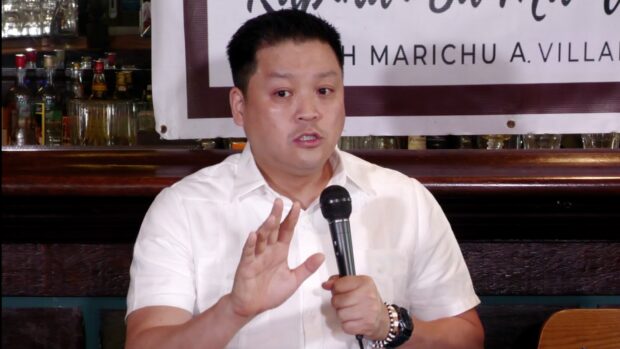Food stamps program to be launched in Tondo
MANILA, Philippines — The government will kick off its food stamp program on Tuesday, beginning with 50 families in Tondo, Manila, for the pilot testing, Social Welfare Secretary Rex Gatchalian announced.
Dubbed “Walang Gutom 2027: Food Provision through Strategic Transfer and Alternative Measures Program (Food Stamp),” the Department of Social Welfare and Development (DSWD) will pilot the program for six months.
“The pilot would take within that six months to fully mature,” Gatchalian told reporters at a news forum in Quezon City on Saturday.
He added that the initial beneficiaries — composed of 50 families — have already been identified by the DSWD.
These beneficiaries are “made of the poorest food-poor families” — or those earning below P8,000 monthly — and families with pregnant and lactating women, Gatchalian stressed.
Article continues after this advertisementThe 50 families selected by the DSWD will be able to use electronic benefit transfer cards to be provided to them by the agency on Tuesday, loaded with food credits of P3,000 per month.
Article continues after this advertisementThe card will be loaded monthly. If a family, for example, only spent P2,500 of their food credits, the remainder will be carried over to the next month.
Romel Lopez, spokesperson for the DSWD, said families can use their respective card to purchase a select list of food commodities from registered and accredited retailers of the DSWD.
Like a debit card
Lopez explained that the cards are nontransferable and will look similar to a debit or credit card, with the name of the family’s cardholder on it. The food points, however, cannot be converted into cash, he said.
He allayed fears that the card might be used for other purposes, such as for buying liquor and cigarettes.
“We have what we call our partner merchants and that is only where the cards can function. There will also be a set of food that they can purchase with the card,” Lopez told the Inquirer in a phone interview.
The food groups that can be purchased using the cards from the DSWD’s “partner merchants” include rice, corn, noodles, bread, flour, pasta, grains, cereals, beef, pork, chicken, fish, coffee, milk, cooking oil, butter, margarine, among others, he added.
As for the partner retailers, Lopez said their main priority for their partner merchants were the Kadiwa centers, which was initiated by President Ferdinand Marcos Jr. himself for affordable food and other commodities amid soaring prices. Next would be the micro, small, and medium enterprises — and even some of the big supermarkets.
The merchants will also be using a system from the DSWD to monitor the food credits to be used by a certain family, Lopez said.
From the pilot testing, he said the DSWD would be able to see the growth of the program and the possible upscaling of the program, depending on their evaluation.
The pilot run will be funded by a $3 million grant from the Asian Development Bank. The government previously announced that around 1 million “food poor” families would benefit from the program.
For the six-month pilot run, Lopez also emphasized that other areas will also be included—one each in Northern Luzon, Mimaropa, Caraga, and Bangsamoro Autonomous Region in Muslim Mindanao.
“All of them have beneficiaries already, not just in Tondo. The one we are launching in Tondo will only be a start or something that will be symbolic to the program,” Lopez explained.
